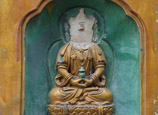
The Communist Party of China Central Committee has strengthened efforts to clear government "small coffers," money that is secretly stored and should not be used privately by certain departments, and illicit issuance of allowances.
However, many have flouted the laws due to low cost of violating them.
Liu Jiayi, NAO auditor general, told a legislative session in June that an audit investigation of 53 major state-owned enterprises showed that allowances and commercial insurance illicitly given by the subject enterprises to their staff amounted to 557 million yuan in 2012.
Under the regulation, officials may also be demoted or dismissed if they are found to have gained allowance money by defrauding fund-granting units or wielded their power to receive allowances from other organizations.
Violations also include releasing too many allowances or giving allowances to personnel who are not supposed to receive them, the regulation shows.
However, Zhu Lijia said the punishment is relatively lenient, and "many officials will not be deterred by (the prospect of demotion or dismissal) and some of them will be reinstated after being disciplined."
Zhou Hanhua said enforcing the regulation will be relatively difficult, as the majority of government officials' salaries are composed of various allowances, and this is accepted as common practice.
He called for transparency in civil servants' salaries.
The professor urged a reform of public fiscal budgets and a tightening government "purse strings."

















 Gun fight between police, drug dealers in China's Chengdu
Gun fight between police, drug dealers in China's Chengdu


![]()
